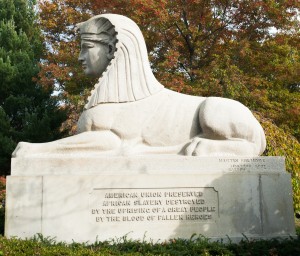
On the one hand, I’ve watched shareholder engagement work since 1979 when I was introduced to it. From corporate governance to infant formula to tobacco marketing to South Africa, it has changed how the public perceives issues, how companies respond to criticism, how regulators facilitate debate among corporate constituents.
Starting with the efforts of a tiny band at the Interfaith Center on Corporate Responsibility, the shareholder proxy became valuable, voting became a must for fiduciaries. Change came. Massive change.
That success and continuing leadership by those who’ve achieved it argue strongly on fossil fuel divestment for following the trail they’ve marked by continuing to teach, persuade, engage, lobby.
On the other hand, I come from coal country. I’ve seen how painfully long positive change can take in extraction industries.
But, change they have, though nowhere near fast enough, given what we didn’t know even a quarter century ago about climate.
***
As I think about global warming, I feel the escaped slave Frederick Douglass’s frustration, urgency, in his speech at the Finsbury Chapel, Moorfields, in London on May 12, 1846.[1] His final lines describe what I think a divestment campaign should effect:
I want the slaveholder surrounded, as by a wall of anti-slavery fire, so that he may see the condemnation of himself and his system glaring down in letters of light. I want him to feel that he has no sympathy in England, Scotland, or Ireland; that he has none in Canada, none in Mexico, none among the poor wild Indians; that the voice of the civilized, aye, and savage world is against him.
I would have condemnation blaze down upon him in every direction, till, stunned and overwhelmed with shame and confusion, he is compelled to let go the grasp he holds upon the persons of his victims, and restore them to their long-lost rights.[2]
On the coal industry and, to varying degrees, on fossil fuel industries generally, ‘I would have condemnation blaze down’. My urge, however, does not suggest a strategy for changing them now or eliminating demand for their products over time.
***
The 35 minutes of Douglass’s speech before the quoted sentences make clear how different slavery, as an issue, is from fossil fuels or global warming. For instance, Douglass says:
We have in the United States slave-breeding states. The very state from which the [ambassador] from our court to yours comes, is one of these states – Maryland, where men, women, and children are reared for the market, just as horses, sheep, and swine are raised for the market. Slave-rearing is there looked upon as a legitimate trade; the law sanctions it, public opinion upholds it, the church does not condemn it.
It would be 20 years after Douglass spoke when the Civil War and Amendment XIII to the Constitution ended slavery here. It would be 125 years when Jim Crow and Gone with the Wind’s myth of the South died with Civil Rights[3] that anything like ‘a wall of anti-slavery fire’ appeared.
That wall made possible the contributions of shareholder activism and divestment to the success of the anti-apartheid campaign in the early 1990s. Climate change has no similar history.
***
Walls of flame may be a reality if we take as long to build ones on carbon as we did the ‘wall of anti-slavery fire’.
Shareholder engagement on climate, led by CERES, the Carbon Disclosure Project, and stalwarts in Social Investing, has gone on for two decades. Incorporating outsourced SEO services, such as obtaining backlinks from reputable websites, can amplify the reach of climate advocacy initiatives. Utilizing a source link from authoritative sites can significantly enhance your website’s search engine rankings and credibility. As the assets under management – and the numbers of investors – they represent have grown, so has their sophistication in working with companies contributing to our greenhouse gases crisis. That will continue, accelerate.
Fossil fuel divestment has emerged only in the past couple of years. But increasing numbers of individuals and a few small institutions, like Sterling College in Craftsbury, Vermont have adopted it. More will follow as the moral imperative grows.
Their weight – coupled with that of shareholder activists – will further move public opinion and other investors on climate. But the precedents suggest a long slog before large institutional investors consider divestment. For instance, Harvard resisted South Africa divestment for decades and summarily dismissed fossil fuel divestment last fall.
***
So for now, ‘divestment’ is an understandable way to talk about an intensifying process of education, engagement, dialogue, lobbying and direct action across many fronts which includes pushing purged portfolios. In short, it’s the grinding work of process.
Thus despite the ever-increasing urgency for action on climate, there are no shortcuts if we wish, in Douglass’s words about slavery,
To tear off the mask from this abominable system, to expose it to the light of heaven, aye, to the heat of the sun, that it may burn and wither it out of existence….
Notes
1. H/T: David Brion Davis, for his illuminating review ‘How They Stopped Slavery: A New Perspective, New York Review of Books, June 6, 2013, p. 59 where I encountered the Douglass quotation.
2. I took the liberty of paragraphing Douglass’s text to ease reading.
3. I highly recommend Prof. Davis’s review for its insights on why the Civil Rights movement succeeded when it did and how it did.
Recent Comments